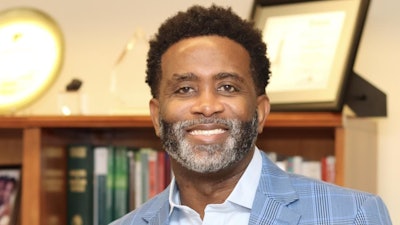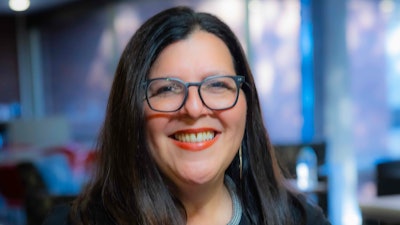For over 150 years, Historically Black Colleges and Universities (HBCUs) have not only been sites of academic excellence but also powerful economic engines in their local and regional communities, leaving a lasting mark on the nation's landscape. Beyond classrooms and campuses, the impact of HBCUs resonates in various economic and community development initiatives that transcend traditional education boundaries, fostering job growth, workforce development, and training opportunities. Dr. Levon T. Esters
Dr. Levon T. Esters
A 2018 UNCF report shed light on the substantial national-level impact of HBCUs, revealing that these institutions annually generate 134,090 jobs and contribute $14.8 billion to their local and regional economies. Moreover, the average lifetime earnings of HBCU graduates are estimated at an impressive $130 billion, attesting to the enduring value of an HBCU education. In the 21 states and territories hosting HBCUs, these institutions provide an average of 6,385 jobs annually and generate an average economic impact of $704.7 million per state. Particularly noteworthy is the role HBCUs play in regions where overall economic activity has been lagging, amplifying their significance in revitalizing communities.
HBCUs are not merely educational institutions; they are vital contributors to community empowerment through cultural, civic, and intellectual engagement efforts. The dollars spent by HBCUs and their students reverberate across a broader area, creating a ripple effect that stimulates economic activity, generates employment, fuels growth, and builds stronger communities. Dr. Marybeth Gasman
Dr. Marybeth Gasman
To truly comprehend the role HBCUs play in community and economic development, it is essential to understand the complementary nature of these terms. Community development involves collective action across various realms, from physical and environmental to cultural, social, political, and economic. In contrast, economic development is a deliberate practice aimed at enhancing a community's economic well-being and overall quality of life. It encompasses activities to attract, create, and retain jobs while fostering a resilient, pro-growth tax base and an inclusive economy, requiring collaboration among industry, government, and community stakeholders.
HBCUs are institutions with a significant infrastructure investment in their communities. These institutions, by virtue of their mission, have invested capital and relationships in the community, playing a crucial role in the economic health of their surroundings. As Dr. Roslyn Artis, president of Benedict College, aptly put it when talking with us, "HBCUs serve their communities by understanding that they must be engines of economic growth and prosperity." Benedict College's proactive approach, including a community development corporation and affordable housing initiatives, exemplifies how HBCUs contribute tangibly to their communities.
Likewise, when we interviewed Dr. David Wilson, president of Morgan State University, he emphasized the symbiotic relationship between HBCUs and their local communities. He highlighted that as HBCUs thrive, so should the communities around them, or else they risk becoming isolated entities. Wilson's commitment to community engagement and economic growth is evident in Morgan State University's transformative impact on the neighborhoods surrounding the campus.
HBCUs perform well in terms of moving African Americans up the socioeconomic ladder, which has led them to being an instrumental force in building the Black middle class. For example, these institutions provide access to quality education and opportunities that empower students to break through historical barriers. The emphasis on academic excellence, coupled with a supportive community, equips graduates with the skills and knowledge needed to enter professions that contribute to the growth of the Black middle class. As such, HBCUs serve as catalysts for upward mobility, fostering a new generation of Black professionals and leaders who actively contribute to the economic and social development of their communities.
Those we interviewed for our book HBCU: The Power of Historically Black Colleges and Universities underscored the importance of a reciprocal relationship between HBCUs and their local communities. Economic needs can only be met sustainably when HBCUs actively engage residents in decision-making processes and foster economic growth collaboratively. For those with whom we talked, it was evident that the prosperity of HBCUs and their communities are intertwined, reflecting a shared commitment to uplift and transform.
Dr. Marybeth Gasman is the Samuel DeWitt Proctor Endowed Chair in Education & Distinguished Professor in the Graduate School of Education at Rutgers University.
Dr. Levon T. Esters is the Dean of the Graduate School and Vice President of Graduate Education at The Pennsylvania State University.
They are the authors of HBCU: The Power of Historically Black Colleges and Universities (Johns Hopkins University Press, 2024).















